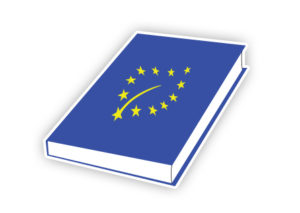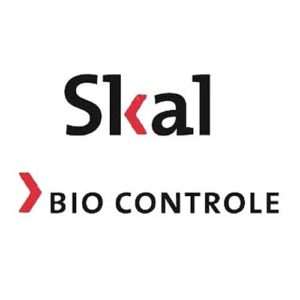The new Organic Regulation: from farm to fork approach reinforced
Posted: May 9, 2018 | Author: Jasmin Buijs | Filed under: Authors, Information, organic |Comments Off on The new Organic Regulation: from farm to fork approach reinforced The organic sector has developed from a niche market to one of the most dynamic sectors of EU agriculture. To recall some numbers provided by the European Commission, the amount of land used for organic farming grows at around 400,000 hectares a year. The organic market in the EU is worth around €27 billion, some 125% more than ten years ago. The EU encourages more farmers into the organic sector and aims to increase consumers’ trust in certified organic products to further boost those numbers. For some background on the regulatory framework, we refer to our earlier blogpost on the Organics Regulation. As already announced in that post, the current Council Regulation (EC) No 834/2007 needs an update as it is based on practices of over 20 years ago. The first proposal for a new EU Regulation on organic production dates back to 2014. Last month, the European Parliament Committee on Agriculture and Rural Development gave green light to the new Organic Regulation. This new regulation aims to guarantee organic production throughout the supply chain by phasing out the many exemptions that are allowed under the current Regulation, such as the use of non-organic seeds as further covered below. In other words, the new regulation shifts from an à la carte system of exceptions to a set menu of harmonized rules. This contribution sets out the most important changes by answering relevant questions in the light of the new Organic Regulation.
The organic sector has developed from a niche market to one of the most dynamic sectors of EU agriculture. To recall some numbers provided by the European Commission, the amount of land used for organic farming grows at around 400,000 hectares a year. The organic market in the EU is worth around €27 billion, some 125% more than ten years ago. The EU encourages more farmers into the organic sector and aims to increase consumers’ trust in certified organic products to further boost those numbers. For some background on the regulatory framework, we refer to our earlier blogpost on the Organics Regulation. As already announced in that post, the current Council Regulation (EC) No 834/2007 needs an update as it is based on practices of over 20 years ago. The first proposal for a new EU Regulation on organic production dates back to 2014. Last month, the European Parliament Committee on Agriculture and Rural Development gave green light to the new Organic Regulation. This new regulation aims to guarantee organic production throughout the supply chain by phasing out the many exemptions that are allowed under the current Regulation, such as the use of non-organic seeds as further covered below. In other words, the new regulation shifts from an à la carte system of exceptions to a set menu of harmonized rules. This contribution sets out the most important changes by answering relevant questions in the light of the new Organic Regulation.
Which products are covered under the new Organic Regulation?
Similar to the current Organic Regulation, the new Organic Regulation applies to live and unprocessed agricultural products, including seeds and other plant reproductive material and processed agricultural products used as food and feed. Processed products can be labelled as organic only if at least 95% by weight of their ingredients of agricultural origin are organic. Unlike the current Organic Regulation, the new Organic Regulation also covers certain other products closely linked to agriculture. Those products are listed in Annex I and include, among others, salt, essential oils, cork, cotton, and wool. Other products may be added in future.
To what extent can non-organic seeds still be used?
Derogations that allow non-organic seeds to be used in organic production will expire in 2035. A couple of measures will be taken to increase the organic seed supply and to help it meet high demands before that time. First of all, Member States shall establish a database of organic plant reproductive material as well as national systems that connect organic farmers with suppliers of organic reproductive material. Secondly, the use non-organic seeds may temporarily remain allowed if the collected data demonstrates insufficient quality and quantity of the organic reproductive material. Also, to meet the demands of organic seeds, organic heterogeneous material is explicitly allowed for in Article 13 of the new Organic Regulation and production criteria for organic varieties are adapted taking into account the specific needs and constraints of organic production. The derogations may be phased out earlier than 2035 or extended based on a report due in 2025, which will examine the situation of plant reproductive material on the market.
Are mixed farms still allowed under the new Organic Regulation?
While the initial proposal of the Commission proposed to ban the production of organic products and conventional products at the same farm, mixed farms continue to exist under the new Organic Regulation. Mixed farms are allowed provided that the two production activities are effectively separated into clearly distinct production units. This means, among others, that inputs for production as well as the final products must be separated to avoid contamination and potential fraud. Also, the two production activities should involve different livestock species and plant varieties.
What measures must be taken to avoid contamination from non-authorized substances?
EU thresholds for conventional products automatically apply to organic ones too. Stricter thresholds for non-authorized substances in organic products are not introduced. This would include high costs, especially for small farmers, to control for example contamination from neighbouring conventional farming. Instead, food business operators are obliged to take precautionary measures to avoid contamination. The responsibility and accountability of organic producers will thus be emphasized. Final products are not allowed to bear the organic label when the contamination was deliberate or caused by irresponsible food business operators that failed to take precautionary measures. Meanwhile, Member States remain at liberty to set specified thresholds for non-authorized substances in organic products, provided that these national rules will not affect the trade of organic products that are legally placed on the market in other Member States. Based on a report due by the end of 2024, anti-contamination rules and national thresholds may be further harmonized in future.
How does the new Organic Regulation ensure the high quality of organic products?
Rather than moving all the control provisions into the regulation on official controls for food and feed, as initially proposed by the Commission, specific rules will apply to the control of organic farming. Organic production refers to the use of production methods that contribute to the protection of the environment, animal welfare, and rural development. Risk-based checks will therefore not be limited to final products but take place along the supply chain to guarantee that organic products are truly organic. Physical on-site checks will take place at least annually; the on-site check may be reduced to once every two years if the food business operator has been fully compliant for three years. In the Netherlands, those inspections are carried out by SKAL as the the designated Control Authority responsible for the inspection and certification of organic companies.
What does the new Organic Regulation mean for products imported into the EU?
Under the current Organic Regulation, organic products produced in third countries are allowed on the EU market when the organic standards of the exporting country are similar to EU rules. This means that organic products are in fact regulated by over 60 different standards. Under the new Organic Regulation, all imported products will have to comply with EU standards. Taking into account the date of application of the new Organic Regulation as well as the transitional period granted for imported products, this rule will only apply as from 2026. Moreover, certain exceptions are introduced to avoid disruptions of supply on the EU market. First of all, the Commission is empowered to grant specific authorization for the use of products and substances in organic production in third countries with specific climatic and local conditions, which therefore cannot comply with the new requirements. This exception also applies to organic production in the EU’s outermost regions, such as the Nordics. Secondly, equivalent production methods in third countries could be recognised under trade agreements.
Conclusion
The new Organic Regulation promises to further boost EU organic production. Measures to increase the supply of organic seeds and animals, allowing mixed farming, and no harmonized thresholds for non-authorized substances aim to attract more farmers into organic production. Meanwhile, measures are taken to increase consumers’ trust in organic products, such as through risk-based checks along the supply chain and the switch from the principle of equivalence to an EU single set of rules for imported products. We expect this to be a major improvement for the algae sector, that suffers unfair competition from Asian countries, where organic standards are not necessarily the same as in the EU.
It takes some more years to see to what extent the Regulation will live up to its promises. While the Regulation itself only becomes applicable from 2021, many rules are subject to further implementation depending on the development of the sector. This illustrates the dynamic character of the organic sector, which creates many opportunities for food business operators active in this field.
